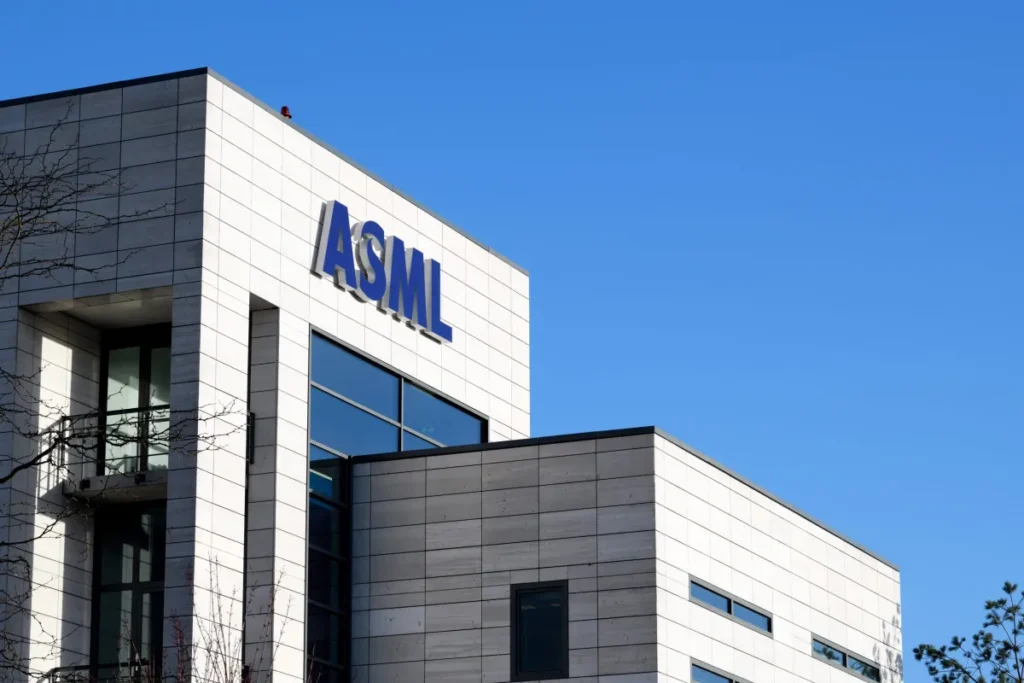Due to investor concerns about possible U.S. government steps to tighten export limits to China, shares of ASML, Europe’s leading provider of equipment for semiconductor fabrication, saw a significant decrease on Wednesday. The company’s second-quarter results announcement, which showed notable improvements in AI-related bookings and above market forecasts, was overshadowed by this event.
In early trading, the stock fell sharply by about 6% in response to a Bloomberg report stating that if allies, including the Netherlands, home of ASML, did not take similar action, the U.S. government might unilaterally impose export controls on chip-making equipment to China.
ASML, already restricted from selling its most advanced products to China, chose not to comment directly on the report. Meanwhile, the Dutch foreign ministry was unavailable for immediate response, adding to the uncertainty surrounding the situation.
Christophe Fouquet, in his inaugural earnings report as ASML’s CEO, characterized 2024 as a transitional period for the company, anticipating stability in performance as it gears up for a robust 2025. He underscored the significant growth trajectory in AI applications, which he identified as a primary driver of recovery across the semiconductor industry, surpassing growth rates in other market segments.
Financially, ASML reported a net income of 1.6 billion euros for the quarter ending June 30, marking a 19% decline compared to the previous year but still surpassing analysts’ forecasts of 1.41 billion euros. Revenue also saw a decline of 9.5%, amounting to 6.2 billion euros, yet exceeding market estimates of 6.04 billion euros.
ASML’s core business revolves around lithography systems, critical tools that use advanced laser technology to create the intricate circuitry found in computer chips. These systems are pivotal for advancing semiconductor capabilities, particularly in high-performance computing and mobile technologies.
In response to heightened U.S.-led restrictions on ASML’s cutting-edge equipment, Chinese chipmakers have increasingly turned to purchasing older-generation equipment for applications in automotive and industrial sectors. China, traditionally ASML’s third-largest market after Taiwan and South Korea, accounted for over 2 billion euros in lithography system sales during the second quarter alone, constituting nearly half of ASML’s total sales volume.
The market reaction to the Bloomberg report highlighted broader investor concerns over geopolitical tensions impacting ASML’s global operations and market dynamics. ASML’s primary customer remains Taiwan Semiconductor Manufacturing Co. (TSMC), a pivotal player in semiconductor manufacturing for major tech giants like Nvidia and Apple.
Despite these challenges, ASML reported a significant uptick in new bookings, totaling 5.6 billion euros in the second quarter, up from 3.6 billion euros in the previous quarter. Approximately half of these bookings were attributed to ASML’s cutting-edge EUV (Extreme Ultraviolet) product lines, essential for manufacturing next-generation AI processors and advanced smartphone chips.
Looking ahead, ASML anticipates sustained robust demand driven by expansions at key customer sites, including TSMC, Intel, and Samsung. These companies are currently investing in new facilities expected to deploy ASML’s equipment between 2025 and 2027, underscoring ASML’s strategic position within the semiconductor ecosystem.
ASML is well-positioned for future development and leadership in the global semiconductor industry despite navigating geopolitical concerns and regulatory obstacles. This is due to the company’s unwavering focus on innovation in semiconductor production technologies and strong customer demand.
If you like the article please follow on THE UBJ.
